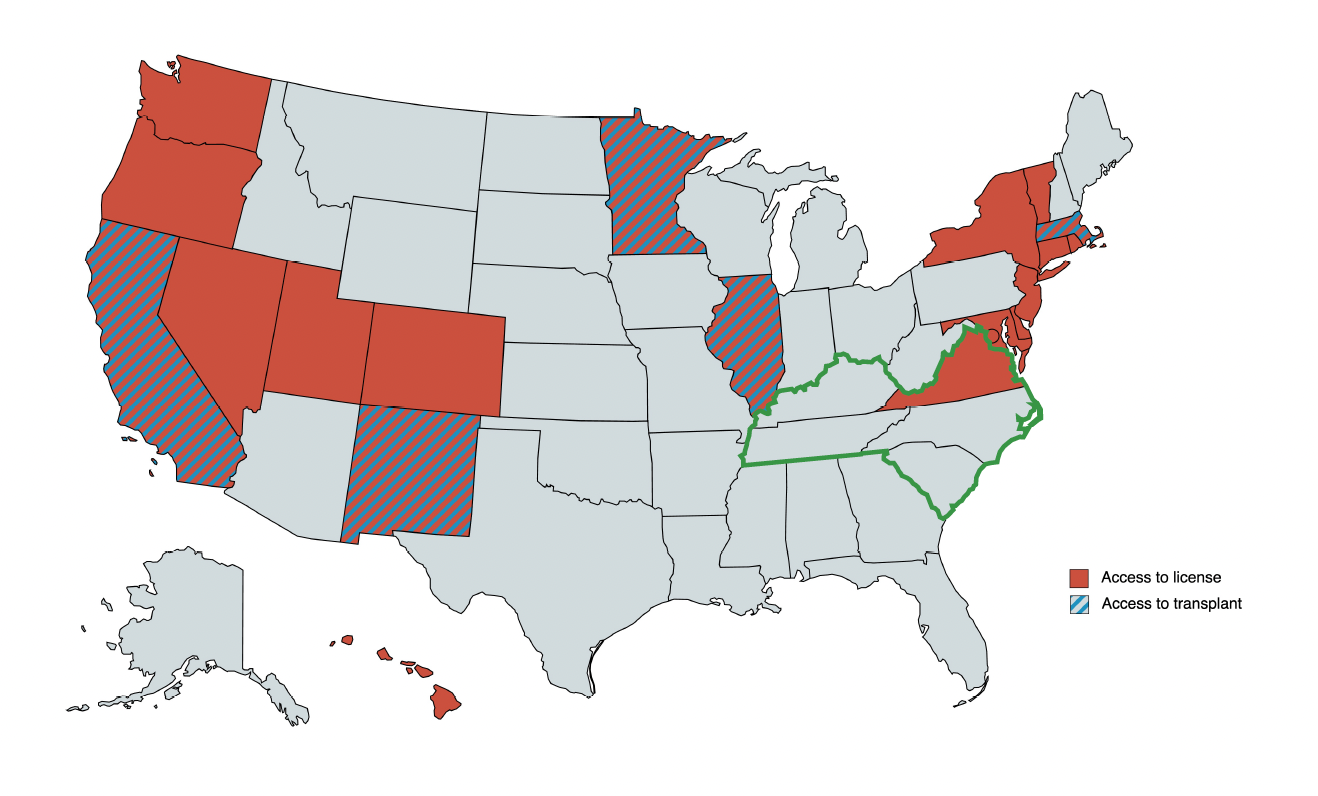Nephrology
Session: Nephrology 2
21 - Lack of reciprocity in the organ donation system: undocumented immigrants as living and deceased donors
Saturday, May 4, 2024
3:30 PM - 6:00 PM ET
Poster Number: 21
Publication Number: 21.1349
Publication Number: 21.1349

Anisha Gerber, MD
Pediatric Nephrology Fellow
UNC
Durham, North Carolina, United States
Presenting Author(s)
Background: Undocumented immigrants interact with the United States (US) kidney transplant system as donors and recipients. As potential recipients, they face insurance-related barriers. Less is known about their contributions as donors. Understanding contributions of non-US citizens and uninsured individuals, many of whom are undocumented, as donors is essential for informing equitable organ distribution strategies.
Objective: We aim to assess participation of non-US citizens and uninsured individuals in the US transplant system as kidney donors.
Design/Methods: This is a cross-sectional secondary analysis of the United Network for Organ Sharing and Organ Procurement and Transplant Network database. We queried the database for information on health insurance and citizenship status of living donors in region 11 (Kentucky, North Carolina, South Carolina, Tennessee, Virginia) and for citizenship status of deceased donors, at least 18 years old, between Jan 1, 2018 and Nov 30, 2022. We report descriptive statistics and bivariate analyses.
Results: There were 2,423 living kidney donors and 8,965 deceased kidney donors 18 years and older in region 11 over 5 years (Table 1). Non-US citizens comprised 2.4% and uninsured people comprised 5.5% of living donors. Living donors who were not US citizens had 13 times the prevalence odds of lacking health insurance compared to those who were US citizens (95% CI 7.46, 22.73). Among deceased donors, 1.1% were non-US citizens, and 2.6% had unknown citizenship status. Among deceased donors who had written documentation of intent to be a donor (44%), the most common form of documentation was a driver’s license (52.7%).
Conclusion(s): Our main finding is that non-US citizens and uninsured individuals, including adolescents and young adults, contribute non-negligibly to the transplant system as living and deceased kidney donors. Previous reports have demonstrated that these same groups, which include undocumented immigrants, experience significant financial barriers to receiving transplant, underscoring lack of reciprocity in the transplant system. The most common form of written documentation of intent to be a donor is a driver’s license, which undocumented individuals may obtain in certain states including some where they cannot access state resources for transplant (Figure 1). Lack of reciprocity particularly affects children and adolescents, who have no control over their physical location and citizenship status. There is need for wider assessment of how undocumented immigrants in particular interact with the organ donation system in order to inform more equitable policies.

.jpg)
